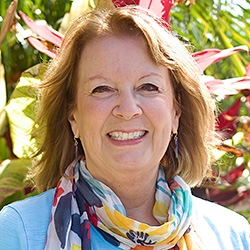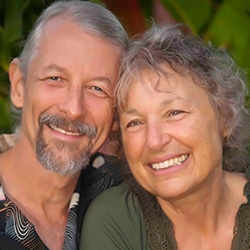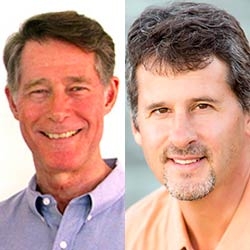

Search Results: personal growth
-
Miki Kashtan hosted Living Room Radio Show on KPFA Radio 94.1FM in Berkeley, California, USA. Listen as she works with a a woman whose relationship is challenged by what happens when her lover drinks. In this segment, Miki encourages the caller to get support for her stress, find an outlet for it and receive empathy. Miki addresses the challenges of addiction, the self-judgment of trying to meet needs by drinking and the pain this causes for everyone involved. She further suggests that the caller try to connect to the needs he is trying to meet by drinking, and to identify those that are actually being met and those that aren’t.
-
There are four components to the Nonviolent Communication (NVC) model, as developed by Marshall Rosenberg, PhD. The 4-Part NVC Process can guide you to express how you are, or they can be used to empathically receive how another is.
-
CNVC Certified Trainer Miki Kashtan talks with radio show host Hollis Polk about strategies for communicating with family members whose political views oppose our own.
-
Join CNVC Certified Trainer Mary Mackenzie to learn a few of her tried-and-true simple Self-Empathy techniques, especially focused on the challenges of the holiday season.
-
Jim and Jori Manske explore the considerations of expressing ourselves honestly, considerations that lead to more fully conscious and nonviolent connections.
-
Join Jim Manske as he leads you through a self-connection exercise to guide you toward welcoming whatever enters into your awareness.
-
Join Jim and Jori Manske in a thought experiment exercise designed to help us become more aware of our conditioning, allowing us to make more conscious and connected choices in the face of conflict.
-
Does unworthiness keep you from expressing vulnerably and honestly? Afraid of being "found out?" Join CNVC Certified Trainer Arnina Kashtan as she explores this topic with a workshop participant to discern stories from needs, recognize the tension between self-acceptance and personal development and sit with the discomfort of self-acceptance.
-
This self-assessment matrix is a concrete step toward naming and clarifying many skills that you may find valuable in your life. We suggest you periodically assess your skills to track your progress.
-
We sometimes forget our intention to stay fully present and awake, it happens to all of us. Join CNVC Certified Trainer Arnina Kashtan as she explores this forgetting, how we hold it and what we can do about it.
-
What do you do when you are thinking that it's not "emotionally safe" to speak honestly? Join CNVC Certified Trainer Arnina Kashtan as she explores this topic with a workshop participant.
-
CNVC Certified Trainer Arnina Kashtan tells us to look to our inner dialogue and the other's needs when we're feeling fear of physical violence that's been stimlated by someone's anger.
-
Explore and embrace your true self in this gentle journey toward authentic self-love.
-
Join CNVC Certified Trainer Arnina Kashtan as she examines the nature of guilt and how apologizing often fails to connect us to our needs.
-
Jim and Jori Manske offer insight into blame, how it arises and how do we handle being blamed and our own blame of others.
-
When you have intrusive thoughts about yourself and feel ‘crummy,’ Ike recommends using the Chooser / Educator map as a guide to lead you out of the primitive part of your brain and back to your prefrontal cortex. Both the Chooser and the Educator want to contribute to your well being, but in different ways. This map facilitates having a positive conversation with them.
-
Jim Manske offers practices to stay in dialogue without defensiveness, especially when it's difficult. Listen to Jim discuss the refining of our commitment to connection and how to respond to others' defensiveness too.
-
Rodger Sorrow introduces us to "Connection Time," a practice for you and a significant other to deepen, broaden and mend your relationship with each other.
-
Celebrate love with Rodger Sorrow! Listen in as Rodger discusses a range of topics such as defining love, religion and love, and how to handle unloving responses.
-
Delve into the power of forgiveness with Rodger Sorrow! Listen in as Rodger explores 3 areas: asking for forgiveness, when it's hard to forgive, and forgiving ourselves.
Quick Links

Stay in Touch!
We value your privacy, won't share your email address and you can easily unsubscribe any time.



















